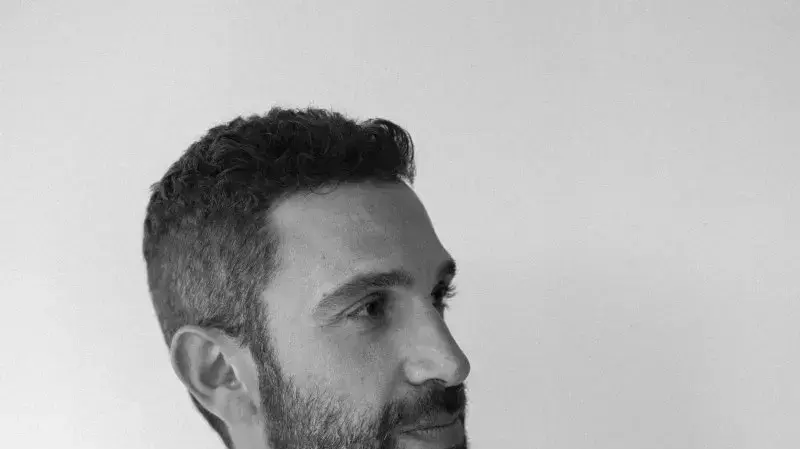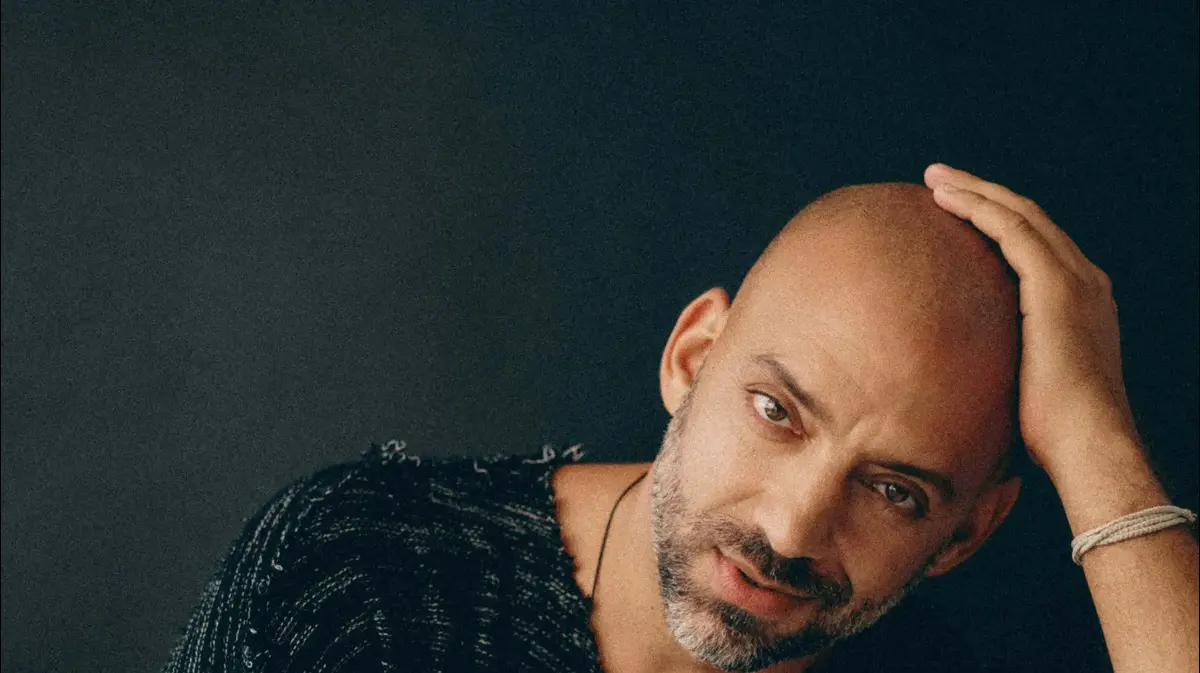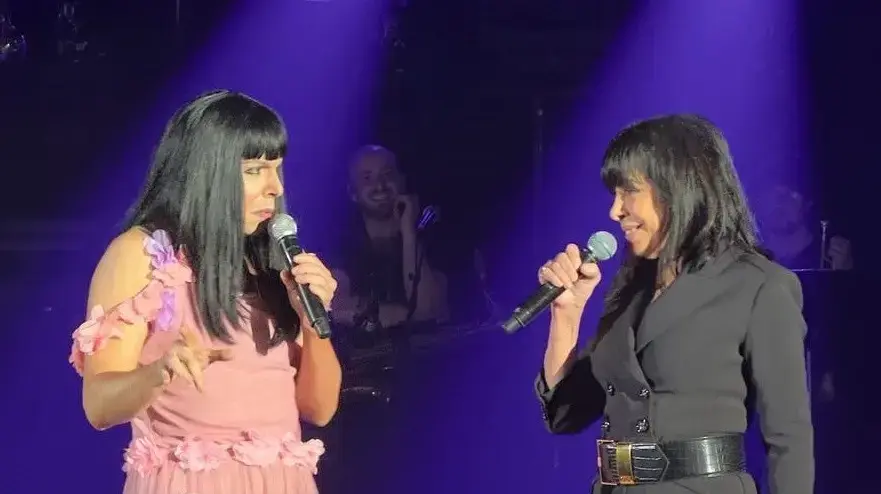Not talking about Eric.
Shlomi Shaban (Photo: Dodi Hasson)
The thing arose and became: a new original studio album for Shlomi Shaban, the fourth in number.
The breaks between Shaban's albums are already a well-known joke: seven years passed from the first album to the second, another seven to the third, and now nine years later, a new album arrives.
It should be said that this count does him an injustice: along with these albums, Shaben signed over the years six more albums that were released as part of more and less side projects.
In recent years there have been two pleasant surprises: the joint and exciting concert tour with Chava Elberstein, which was also recorded in the album;
And the fantastic soundtrack he created together with Shuzin for the series "Ed Kolach", even if you were less connected to it, the songs that accompanied it should not be missed.
All these are nice, but when Shaban sails his own ship - he aims much higher.
Each of his albums included songs that became huge hits, boasted virtuoso arrangements, and were later celebrated with lavish performances.
Maybe this high bar is what's holding him back in the first place, or maybe it's just extreme perfectionism, but whatever the reason for the creative barrier, the dam is now open.
The name of the album, "Open House Part A", probably hints at Part B which should be released in the not-too-distant future.
The first thought that comes up in this context is that releasing albums in parts, especially in 2023, is a strange act, which makes it difficult to stand up to the nature of what is laid out here.
Is there a bigger story here that has yet to be fully revealed?
Will part A give up at all in the mind when part B will be willing to go out into the world so that we can notice it?
What is it good for?
Is this at all a scam, in the framework of which Ben releases one album or two albums only so that they stop commenting on the breaks between the various releases?
But after dispelling this puzzlement, we must admit that there is also an advantage in this: "Open House Part I" is a tight and strong album, and very good for the most part.
It has seven songs in total, but they are varied in terms of style and each of them stands on its own.
It doesn't feel like a too short album or an unfinished project.
The concept - the same "open house" - is general enough to cover everyone under one umbrella: it's a personal album, fresh and with a more melancholic tone than usual, which includes an invitation to quite intimate moments (and sometimes too intimate. We'll get to that later).
In the press release that accompanied the release of the album, Ben described how he got tired of singing the same songs over and over again, which led him to create the new songs.
If you think about "Open House" in this way, you can recognize this journey in it: the places where Ben digs into his familiar identity, with the piano and the libido and the rage of the first album, and where he tries to reinvent himself, to deal with aspects of Israeli music that he is not necessarily the partner of their natural, and to find in them who he is.
To the first type can be attributed the opening and piano "Don't ignore me", "Many Time" (something in its rhythm reminds of "Intuition"), the long "Your wife's lover" and the closing and moving "Nuri", dedicated to his son.
In the end, it's the other three songs, the ones where Ben hosts, that give this album its color.
About "Canaan", with Ravid Plotnik and Shuli Rand, it has already been written here in detail: it is one of the most important songs of the year, a brilliant work of thought of quotation and correspondence, between recitation and rap and poem, which encompasses the Jewish story in less than five minutes and proves once again Shaban's wonderful ability to capture the spirit of the times and express collective feelings;
"Romansa (Shadow in Your Heart)" with Neta Elkayam, which has just entered the Galgalat playlist, is a kind of original exercise that combines flamenco and oriental frills, with a beautiful western melody and arrangement but also with strange and not completely resolved lyrics.
More in Walla!
Suddenly a surprising star appeared for her in the sky of Israeli music: the Land of Israel
To the full article
The real surprise comes precisely from the direction of "La Vita a Longa" ("Life is long"), which is simply brilliant.
It's a multi-layered story in half-laughing and half-crying language, about sour memories of parties, anxieties and especially youthful loves.
As is the way of experiences from this age, they are powerful ("and I am in the middle of it all, with an open heart, eyes, thoughts and mouth", or the wonderful description "the beauty is all around the eyes like a knife in the schoolyard"), and do not fade ("I am still a name").
Shaben grew up between the 1980s and 1990s, and in order to convey these experiences he turns to programming that recalls the music of that era - especially the drum beats - and adds some Spanish guitar playing and an orchestra.
The combination of this arrangement, the open and associative sentences and the way in which they are said, the style of the chorus, and of course the wonderful presence of Miri Mesica - all these make "La Vita a Longa" sound - in my life - like a song from Shlomo Artzi's golden age, in the best sense of the term.
who would believe.
It's a wonderful song because it's compelling, and its pathos isn't fake.
Shaban plays with pathos again and again, plays with words and drama.
When it's good - it's excellent.
He is able to diagnose wonderfully what is on the table and what is hidden underneath, in a witty language that almost no one can compete with (at the peak: "The One Citizen", "Exercise in Awakening").
Sometimes, and it has happened enough times in his career, this talent is wasted on a few songs that are too satisfied with themselves, especially when it comes to the relationship between men and women, or on the cleverness and upside down upside down, until even the irony is fed up.
You will also be interested in:
He is more of a comedian than a singer, but Tamir Bar managed to take the subliminal barbie by storm and the
shadow returned to songs from the beginning of the millennium.
The friends stole the show for them
Impressive, exciting and a little boring: Polykar's Greek show is recommended for heavy fans
"The Greatest Writer in Israel" celebrated 60 with a dream performance.
How he deserves it
There are also some such moments in the album, lines like "I will live even if my life depends on it", for example ("Don't ignore me"), or "Shlomi Shaban - Shmookhead, stupid cockhead" ("Money Time").
The worst of them is "Your Wife's Lover", one of the most mysterious songs that Shaban ever released: no less than seven minutes and seventeen seconds of an imaginary or actual conversation with, as you can understand, some kind of lover.
Her plot takes place in English, and it ends in tears and a fight.
There is, of course, a pointless quote by Meir Ariel from "The Wounded Song of Our Love".
It's an absurd and unpleasant text with too much information, without any artistic justification.
It's a shame, this huge elephant adds nothing to the album, apart from the reminder of what Ben already admitted in his first hit: "Look, you just told me Eric, I became a little unsettled".
Most of the songs in "Open House - Part I" are a kind of riddles that deceive the listeners.
true or false?
Shaban in the songs is the real Shaban or "Shaban", an alter ego with made up stories?
In "Money Time", the first single released by Shaban from the album, there is a nasty line hidden: "Don't look for truth in a song, don't look for yourself, and if you find it - don't look me in the eyes" - which actually undermines these stories and their authenticity.
And maybe anyway?
The line before this line states: "Don't look for a gram of grace in the song" - but sometimes it actually has a lot of that in it.
Such is, for example, the closing poem, "Nuri", dedicated as mentioned to his son.
It's a touching song about fatherhood and the plethora of confusing feelings that come with it.
With the Israeli camera Jerusalem behind him, as well as the voice of Hila Roach, he sings about the birth on the day when "the words left their minds, and everything we thought swirled and disappeared with them", wondering about the time that passes and the experiences that are passed on to the next generation and promises: "I watch over you,
culture
music
very attentive
Tags
Shlomi Shaban
Miri Mesika
Neta Elakim
Shuli Rand
Ravid Plotnik









